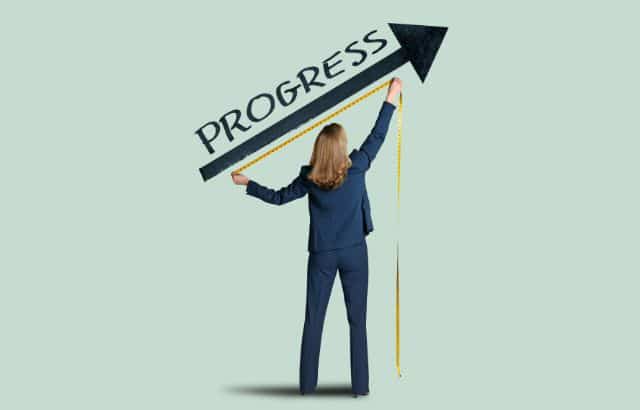Self-confidence is the cornerstone of personal growth, success, and well-being. It’s the belief in your own abilities, trust in your decisions, and the courage to take on life’s challenges. While some people may appear naturally confident, self-confidence is a skill that can be cultivated and strengthened over time. This article explores practical steps to develop self-confidence, along with real-life examples and insightful quotes to inspire and guide you.
Table of Contents
1. Self-Awareness: Know Yourself

The first step in building self-confidence is understanding yourself. Take time to reflect on your strengths, weaknesses, values, and passions. Self-awareness allows you to build confidence by focusing on what you do best and recognizing areas where growth is needed.
Example: Vishakha, an aspiring writer, discovered that storytelling was her true passion. She started a blog and wrote regularly, gradually improving her writing skills. As she received positive feedback from readers, her self-confidence soared.
“The most difficult thing is the decision to act, the rest is merely tenacity.” – Amelia Earhart
2. Building Self-Confidence – Set Achievable Goals

To build self-confidence, set clear, realistic goals that you can achieve. These goals should be specific, measurable, and within reach. Achieving these goals, no matter how small, will create a sense of competence and reinforce your belief in yourself.
Example: Ameya wanted to improve his public speaking skills. Rather than aiming for perfection right away, he set a goal to give one short presentation every month. With each successful presentation, his confidence grew, and he gained the courage to speak at larger events.
“A goal without a plan is just a wish.” – Antoine de Saint-Exupéry
3. Building Self-Confidence – Challenge Negative Self-Talk

Negative self-talk can be a significant barrier to self-confidence. The way we speak to ourselves influences how we see our abilities. When negative thoughts arise, challenge them. Replace limiting beliefs with positive affirmations and constructive self-talk to shift your mindset.
Example: Sujata used to doubt her ability to learn new skills. Whenever faced with a challenge, she would tell herself, “I can’t do this.” She decided to change this narrative, saying, “I may face challenges, but I can learn and improve.” Over time, this positive self-talk helped her grow more confident.
“Whether you think you can, or you think you can’t – you’re right.” – Henry Ford
4. Expand Your Comfort Zone

True growth lies beyond your comfort zone. Pushing yourself to take on new experiences and responsibilities helps you build resilience and confidence. The more you expand your comfort zone, the stronger your belief in yourself will become.
Example: Mark was hesitant to take on leadership roles at work, but he decided to lead a small team project. Although nervous at first, the experience gave him valuable skills and the realization that he could handle more significant challenges in the future.
“Life begins at the end of your comfort zone.” – Neale Donald Walsch
5. Practice, Practice, Practice

Mastery and self-confidence go hand in hand. Consistent practice in any area, whether it’s a skill or a personal hobby, will lead to improvement and greater self-assurance. The more you practice, the better you become, and the more confident you feel in your abilities.
Example: Arya, an aspiring guitarist, struggled with complex chords but dedicated herself to daily practice. Over time, her skills improved, and she felt more confident playing in front of others, even performing at local gatherings.
“Practice does not make perfect. Only perfect practice makes perfect.” – Vince Lombardi
6. Embrace Failure as a Learning Opportunity

Failure is an inevitable part of life, and it doesn’t define who you are. Rather than seeing failure as a setback, view it as a stepping stone for learning and growth. Embracing failure can strengthen your resilience and self-confidence over time.
Example: Alex applied for a job he was passionate about but was turned down. Instead of giving up, he sought feedback and worked on improving his skills. When he applied for a similar job a few months later, he felt more confident and was ultimately offered the position.
“Success is not final, failure is not fatal: It is the courage to continue that counts.” – Winston Churchill
7. Seek Support and Feedback

You don’t have to build self-confidence on your own. Seeking support from friends, mentors, or coaches can provide valuable feedback and encouragement. Constructive criticism can guide your growth, while positive reinforcement can give you the confidence to keep going.
Example: Jessica joined a public speaking club where experienced speakers gave her feedback and encouragement. With their support, she improved her speaking skills and became more confident speaking in front of audiences.
“Surround yourself with only people who are going to lift you higher.” – Oprah Winfrey
FAQs on Building Self-Confidence

Q1: How long does it take to build self-confidence?
Building self-confidence is a journey, and it varies for each individual. It may take a few weeks or several months, depending on the consistency of the efforts you put in. The key is to keep practicing and working on it regularly.
Q2: Can I build self-confidence if I have a history of failure?
Yes, absolutely. In fact, past failures can be powerful learning experiences. The key is to view failure as a lesson rather than a defeat. By shifting your perspective and focusing on improvement, you can build your self-confidence, no matter your history.
Q3: What if I still feel self-doubt?
It’s normal to experience self-doubt from time to time. Confidence doesn’t mean the absence of doubt but the ability to move forward despite it. Acknowledge your doubts, but don’t let them control your actions. Remember, confidence grows over time with persistence and self-compassion.
Conclusion
Building self-confidence is an ongoing journey that involves self-awareness, goal setting, challenging negative thoughts, stepping out of your comfort zone, consistent practice, embracing failure, and seeking support. Remember, self-confidence isn’t about perfection; it’s about believing in your ability to learn, adapt, and face challenges head-on. By practicing these steps and staying committed, you will unlock your true potential and achieve success in various aspects of your life. Keep going – the more you nurture your confidence, the stronger it will become.
“Believe you can and you’re halfway there.” – Theodore Roosevelt










